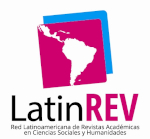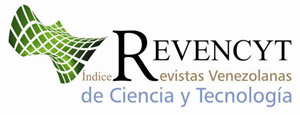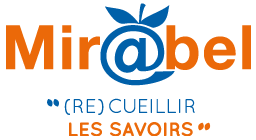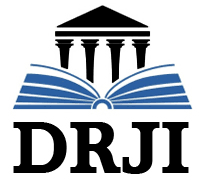Non-governmental organizations from the paradigm of development sustainable human
Keywords:
non-governmental organizations, sustainable human development, sustainable development goalsAbstract
The purpose of the essay was to present the conceptual contextualization of the Sustainable Human Development and Non-Governmental Organizations (NGO) paradigm, based on the review of scientific articles and bibliographic material to develop an approach from an interpretative paradigmatic position with a hermeneutical approach. The study was inserted in the Organizational and Managerial Management research line of the Yacambú University. It was concluded that NGOs are conceived from a management philosophy with commitment towards workers, the community, users and society in general, which is in tune with the economic, social and environmental dimensions of Sustainable Human Development and the Objectives of the Sustainable Development (SDG) of the United Nations. In this sense, it constitutes a contribution to the management field, given its increasing complexity and that, as we believe, there is a need to adopt an innovative approach in the management of organizations from an approach with a transcomplex approach.
Downloads
References
Aguado, I., Echebarria, C. y Barrutia, J. (2009) El desarrollo sostenible a lo largo de la historia del pensamiento económico. Revista de Economía Mundial. (21), 87-110. http://www.redalyc.org/articulo.oa?id=86611886004
Aristizábal, A. (2005). La Educación para el Desarrollo en la Enseñanza Universitaria como una Estrategia de la Cooperación Orientada al Desarrollo Humano. Tesis Doctoral. Universidad de Valencia. España. http://www.upv.es/upl/U0566708.pdf
Bustos, C. y Chacón B. (2009) El desarrollo sostenible y la agenda 21. Telos. http://www.redalyc.org/articulo.oa?id=99312517003
Organizcion de Naciones Unidas. (2000). Declaración del Milenio. (http://www.un.org/spanish/milenio/ares552.pdf
Diccionario de Acción Humanitaria y Cooperación al Desarrollo. (2000). http://www.dicc.hegoa.ehu.es/listar/mostrar/67
Dubois, A. (2014). Marco Teórico y Metodológico del Desarrollo Humano Local. http://es.calameo.com/read/004414688dfea653250b3
Fajardo, L. (2006). Desarrollo Humano Sustentable: conceptos y naturaleza. Revista electrónica de difusión científica Universidad Sergio Arboleda. Bogotá – Colombia. http://www.usergioarbolrda.edu.co/civilizar
Fundación Vicente Ferrer. (2017). Guía de los ODS para las Organizaciones del Tercer Sector. http://fundacionvicenteferrerodsmadrid.org/wpcontent/uploads/2017/10/GuiaODSorganizaciones3Sector_-F.VicenteFerrer.pdf
Gómez, D. (2011). El Pacto Global de las Naciones Unidas: sobre la responsabilidad social, la anticorrupción y la seguridad. Prolegómenos. Derechos y Valores, XIV (28), 217-231. https://www.redalyc.org/articulo.oa?id=87622536014
Griffin. (s/f). Desarrollo Humano origen y evolución. http://www.ciberoamericana.com/documentos/introcoopdes/Desarrollo%20Humano.%20Origen,%20Evoluci%23U00f3n,%20Impacto.pdf
Guerra, A. (2014). Desarrollo Humano Integral compromiso de todos. Ediciones del Banco Central de Venezuela y Cátedras Libres de la UCLA. Venezuela.
Montero, M. (2003). El Marketing en las ONGD, la gestión del cambio social. Bilbao, España: Editorial Desclée.
Morin, E. (1999). El método. El conocimiento del conocimiento. (3ª ed.). Madrid: Cátedra.
Ortiz, R. (2005). Caracterización de las Organizaciones No Gubernamentales: El caso de los municipios Maracaibo y San Francisco. Revista Venezolana de Gerencia, 10(32), 652-674. http://www.scielo.org.ve/scielo.php?script=sci_arttext&pid=S131599842005000400007&lng=es&tlng=es
Pinzón, C. (2005). El papel de las ONG y sus alcances en la responsabilidad social empresarial. Revista Oper. http://www.redalyc.org/articulo.oa?id=67550506
PNUD (2011). Informe sobre el desarrollo humano. Sostenibilidad y equidad. Un mejor futuro para todos. http://hdr.undp.org/es/informes/mundial/idh2011/descargar
Sen, A. (2009). Desarrollo y Libertad. Colombiana S.A. Editorial Planeta.
Skibick, M. (2009). Las ONG como vía al desarrollo y a la transformación social: un estilo de intervención y participación. Tesis. https://www.tdx.cat/bitstream/handle/10803/107962/msa1de1.pdf?sequence=1
Tenorio, F. (1997). Gestión de las ONG. Rio de Janeiro. http://www.anpad.org.br/admin/pdf/EOR1546.pdf
Unceta, K. (1996). El hambre como fracaso del desarrollo, en Sutcliffe, B. (ed.), El Incendio Frío, Icaria, Barcelona.
Vargas, G. (2002). Hacia una teoría del capital social. Revista de Economía Institucional. 4(6),71-108. https://www.redalyc.org/articulo.oa?id=41900604
Published
How to Cite
Issue
Section
License

This work is licensed under a Creative Commons Attribution-NonCommercial-ShareAlike 4.0 International License.





















